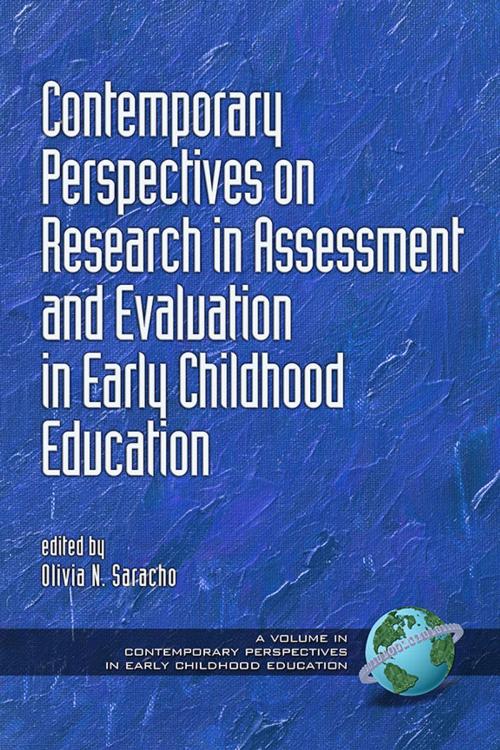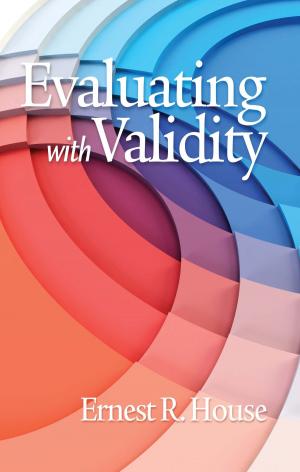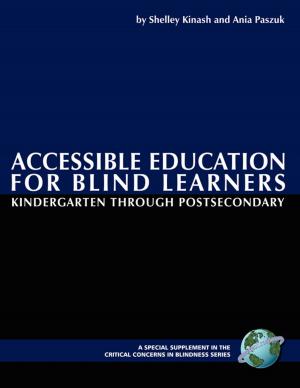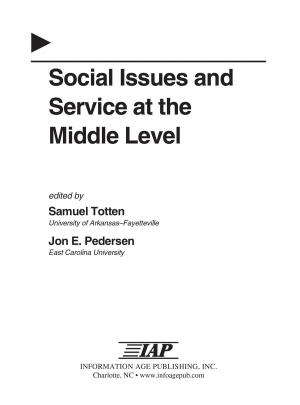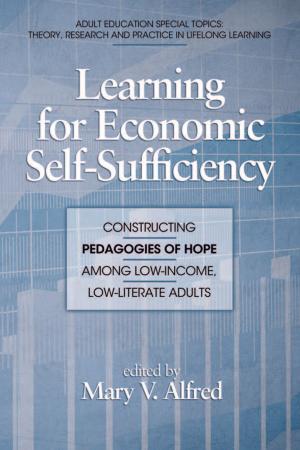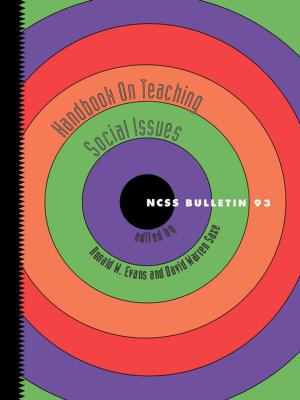Contemporary Perspectives on Research in Assessment and Evaluation in Early Childhood Education
Nonfiction, Reference & Language, Education & Teaching, Elementary| Author: | ISBN: | 9781681231549 | |
| Publisher: | Information Age Publishing | Publication: | August 1, 2015 |
| Imprint: | Information Age Publishing | Language: | English |
| Author: | |
| ISBN: | 9781681231549 |
| Publisher: | Information Age Publishing |
| Publication: | August 1, 2015 |
| Imprint: | Information Age Publishing |
| Language: | English |
Researchers, educators, professional organizations, administrators, parents, and policy makers have increased their involvement in the assessment and evaluation of early childhood education programs. This interest has developed swiftly during the last decades. The National Association for the Education of Young Children (NAEYC) and the National Association of Early Childhood Specialists in State Departments of Education (NAECS/SDE) developed a position statement titled, “Early childhood curriculum, assessment, and program evaluation: Building an effective, accountable system in programs for children birth through age 8,” to address related trends, issues, guiding principles, and values. Appropriate and welldesigned evaluations need to address several audiences including researchers, educators, policy makers, children, and parents. They need to encourage the implementation of a strong foundation that improves the quality of the children’s education. Child assessment and program evaluation can lead to effective results and better accountability for preschool, kindergarten, and primary school programs. The purpose of this volume is to share a collection of research strands on contemporary perspectives on research in assessment and evaluation in early childhood education. It provides a review and critical analysis of the literature on assessment and evaluation of programs, children, teachers, and settings. The volume begins with a brief introductory chapter that presents the reader with a map of the area, laying out the issues and alternatives, and linking these to the chapters that follow. It addresses several areas including (1) understanding assessment and evaluation with young children, (2) schools and assessment implications, (3) teacher evaluation and professional development, (4) social relationships and assessment, (5) content areas in early education assessment, (6) technology and assessment, and (7) conclusion with future research directions in assessment and evaluation in early childhood education. The volume is of interest to researchers, educators, policy makers, university faculty, graduate students, and general readers who are interested in research on assessment and evaluation in early childhood education. The chapters are authored by established scholars in the field.
Researchers, educators, professional organizations, administrators, parents, and policy makers have increased their involvement in the assessment and evaluation of early childhood education programs. This interest has developed swiftly during the last decades. The National Association for the Education of Young Children (NAEYC) and the National Association of Early Childhood Specialists in State Departments of Education (NAECS/SDE) developed a position statement titled, “Early childhood curriculum, assessment, and program evaluation: Building an effective, accountable system in programs for children birth through age 8,” to address related trends, issues, guiding principles, and values. Appropriate and welldesigned evaluations need to address several audiences including researchers, educators, policy makers, children, and parents. They need to encourage the implementation of a strong foundation that improves the quality of the children’s education. Child assessment and program evaluation can lead to effective results and better accountability for preschool, kindergarten, and primary school programs. The purpose of this volume is to share a collection of research strands on contemporary perspectives on research in assessment and evaluation in early childhood education. It provides a review and critical analysis of the literature on assessment and evaluation of programs, children, teachers, and settings. The volume begins with a brief introductory chapter that presents the reader with a map of the area, laying out the issues and alternatives, and linking these to the chapters that follow. It addresses several areas including (1) understanding assessment and evaluation with young children, (2) schools and assessment implications, (3) teacher evaluation and professional development, (4) social relationships and assessment, (5) content areas in early education assessment, (6) technology and assessment, and (7) conclusion with future research directions in assessment and evaluation in early childhood education. The volume is of interest to researchers, educators, policy makers, university faculty, graduate students, and general readers who are interested in research on assessment and evaluation in early childhood education. The chapters are authored by established scholars in the field.
